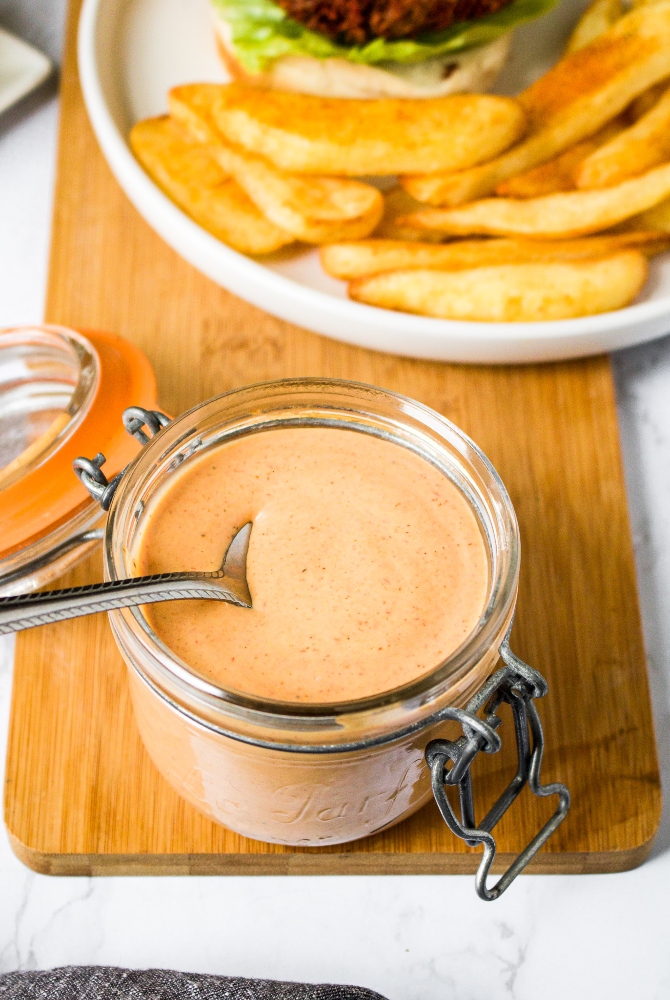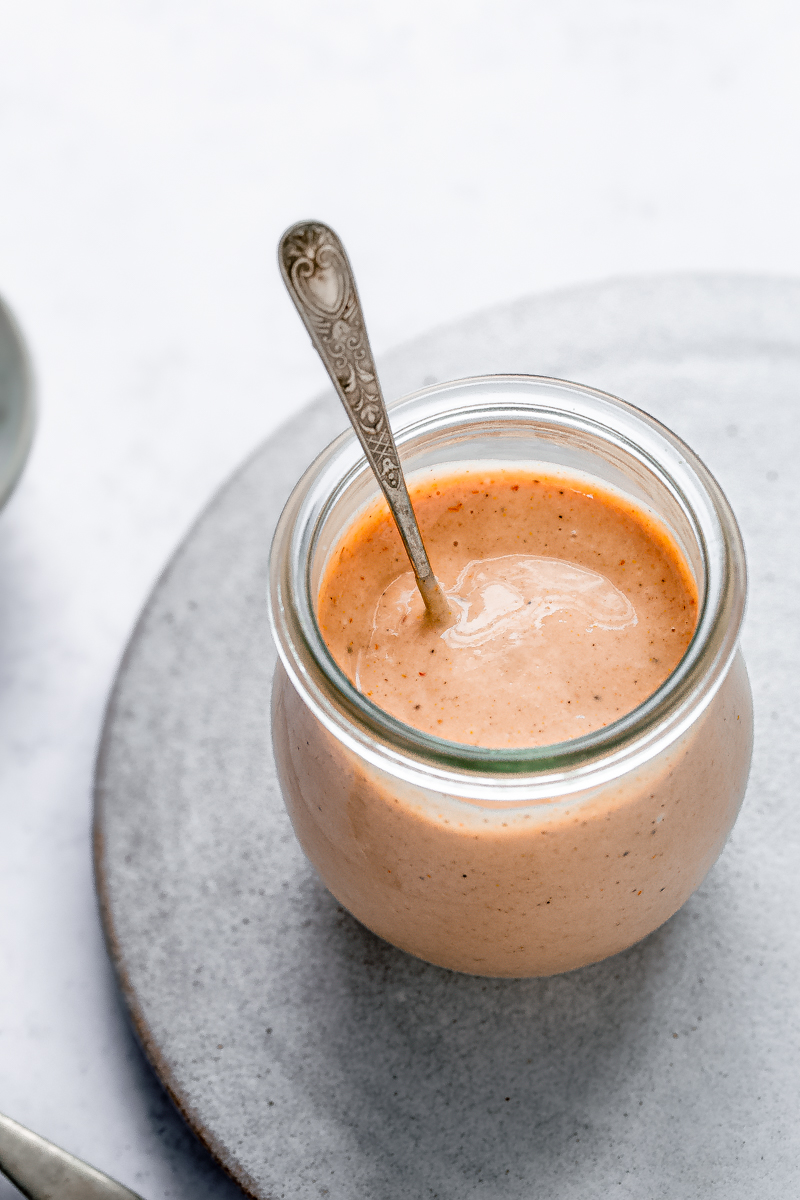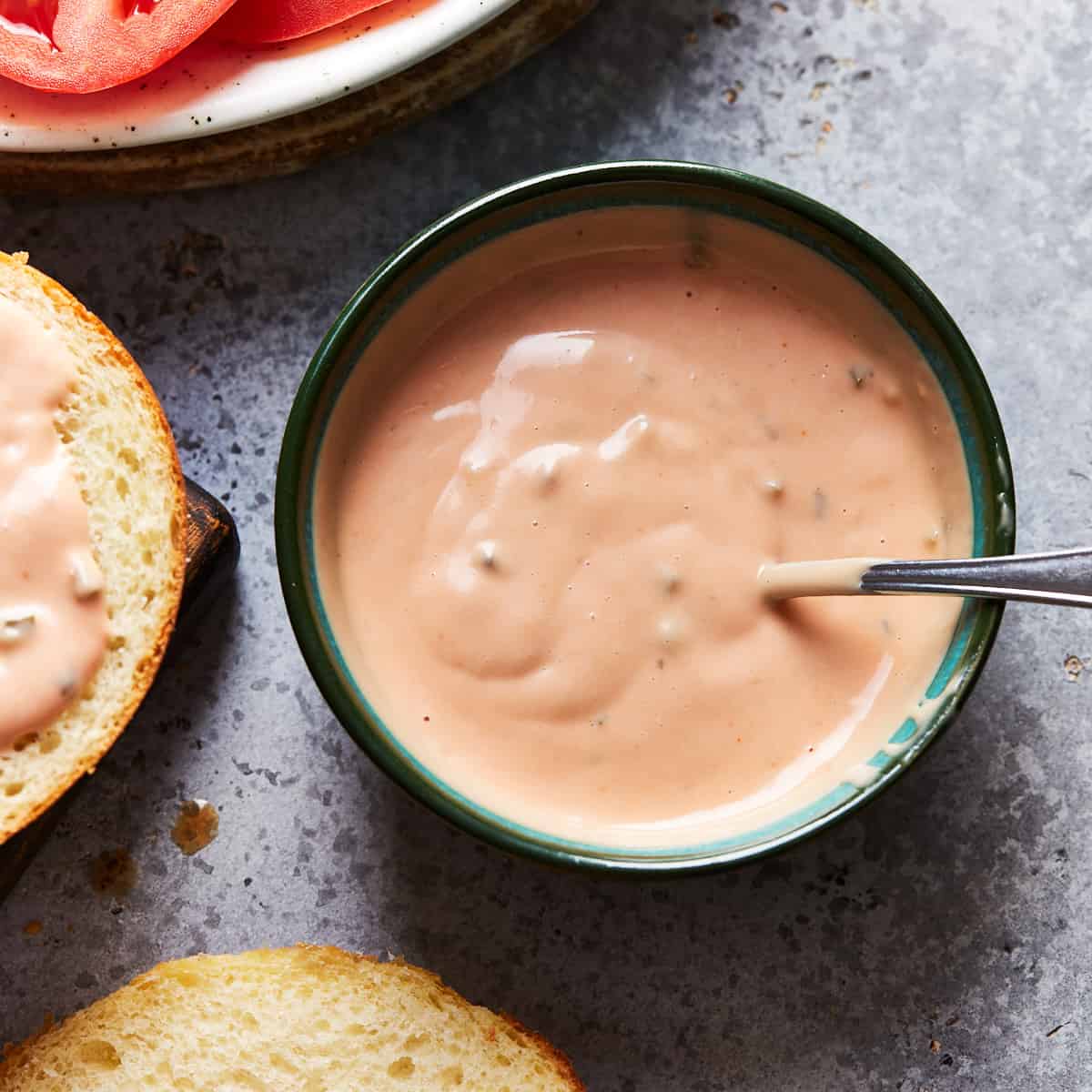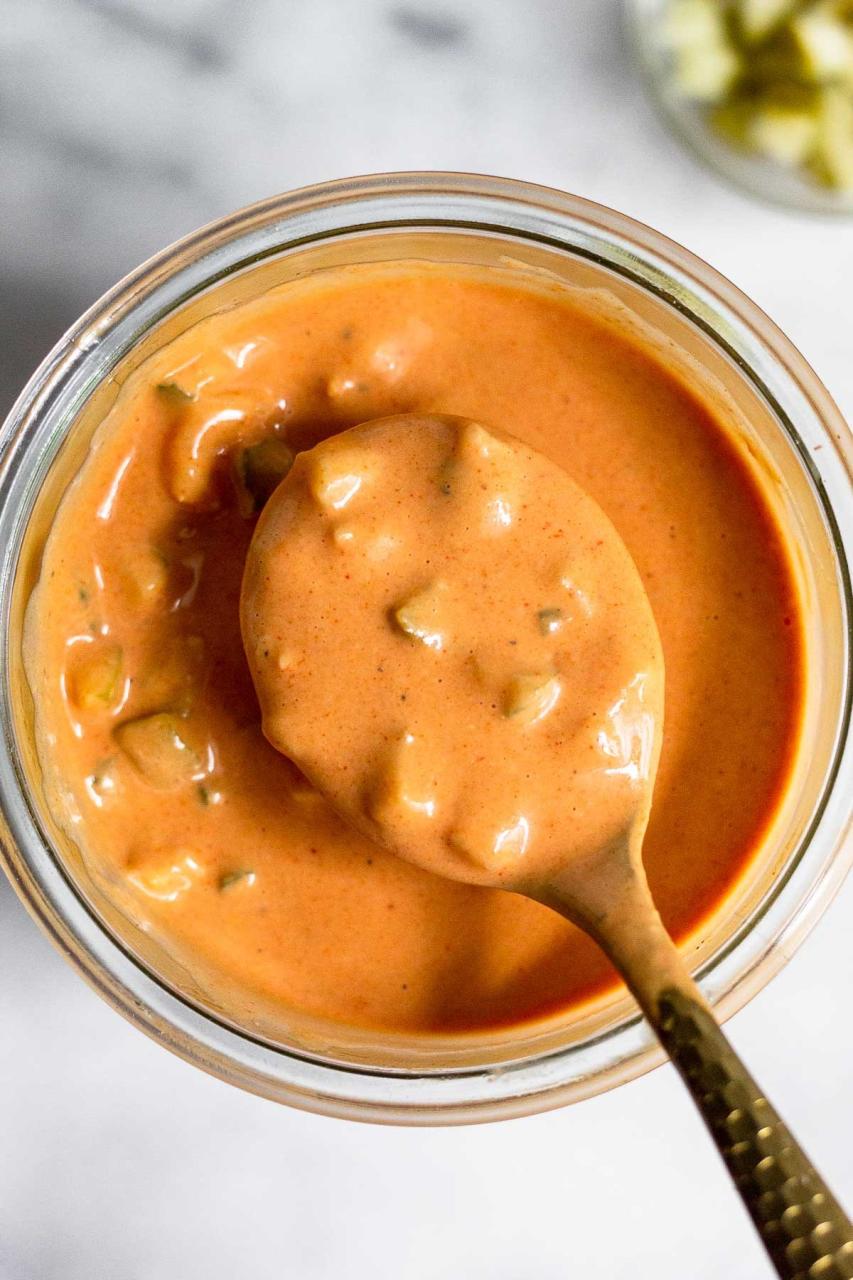Vegan special sauce typically refers to a condiment that mimics the flavor and texture of traditional special sauces but is made entirely from plant-based ingredients, thus aligning with vegan dietary practices which exclude the use of animal products. The creation of vegan alternatives to popular food items has been a growing trend as more consumers adopt veganism for ethical, environmental, or health reasons.
When making a vegan special sauce, it is important to consider the key elements that define a “special sauce”, commonly characterized by a creamy texture, a sweet and tangy flavor profile, and a light orangish-pink hue. Traditional special sauces often achieve this with a combination of mayonnaise, ketchup, or tomato paste, sweet pickles or relish, sugar, vinegar, and various spices and seasonings.
To replicate this in a vegan context, ingredients such as vegan mayonnaise (which uses aquafaba, soy milk, or other vegan emulsifiers instead of eggs) can provide the creamy base. For sweetness and tang, agave syrup or organic sugar can be used along with apple cider vinegar. Tomato paste or vegan ketchup can be incorporated for color and savory notes. Additional flavorings like onion powder, garlic powder, paprika, and mustard can be added to taste. Blending these elements yields a sauce that is versatile and can be tailored to individual preferences in terms of flavor balance and spiciness.
Developing a vegan special sauce can involve experimenting with different ingredients to achieve the desired taste and consistency. Ingredients such as capers or pickled vegetables finely chopped can also be included for added texture and to introduce elements of traditional relish. The result is a condiment that can be used to enhance various dishes, including burgers, sandwiches, salads, and more, providing a familiar yet vegan-friendly option.
Vegan Special Sauce Recipe


Vegan Special Sauce
Equipment
- 1 medium mixing bowl
Ingredients
- 1 cup vegan mayo
- 1/4 cup ketchup
- 1/4 tsp apple cider vinegar
- 2 tsp sweet relish
- 1 to 1 1/2 tbsp mustard
- 1/4 tsp. garlic powder
- 1/8 tsp paprika
- 1/4 tsp onion powder
Instructions
- Combine all the ingredients in a medium mixing bowl and stir until well combined.
- Add water to thin a bit if you want, start with 1 tsp of water at a time until your desired consistency is reached.
- Serve the sauce on a French fries, sandwich or as a dip on cracker. Enjoy!
Notes
Store any leftover in an air tight container and keep in the fridge, use within a week.
Cooking Tips about Vegan Special Sauce

- Base: Typically starting with a plant-based fat source like avocado or nuts, which give the sauce creaminess. For a lighter base, one could use blended silken tofu or cooked and pureed white beans.
- Acidity: This can be introduced through vinegar, lemon juice, or lime juice to brighten up the flavors and add a zing that balances the richness.
- Umami Depth: To achieve that savory depth often found in non-vegan sauces, one may use ingredients like soy sauce, tamari (gluten-free alternative), liquid aminos, or even vegan Worcestershire sauce. Nutritional yeast is also a popular choice for adding cheesy flavors and umami.
- Sweet Element: Balancing umami and acidity, a hint of sweet can be introduced with natural sweeteners such as maple syrup, agave nectar, or dates. This component should be used moderately as to not overpower the sauce.
- Seasonings and Spices: Depending on the desired flavor profile, one might include garlic, onion powder, mustard, smoked paprika, or cayenne pepper. Fresh herbs can also add a burst of flavor; consider basil, cilantro, or dill.
- Texture: For extra texture, one can add finely chopped pickles, sundried tomatoes, or olives. Textural contrast can be interesting in a sauce.
- Thickness and Consistency: Adjust the flow of your sauce with thickness in mind. It should be thick enough to cling to your food but not overly gloopy. If the base is too thick, thin it down with a small amount of water or unsweetened plant-based milk. If too thin, thicken with soaked and blended cashews or use a small amount of cornstarch or arrowroot powder cooked into the mixture.
Serving suggestions about Vegan Special Sauce

When it comes to formulating serving suggestions for a vegan special sauce, it’s essential to consider the ingredients and flavor profile of the sauce to ensure compatibilities with various dishes. Vegan sauces are typically made without any animal products, which might commonly include dairy, eggs, or honey, which are hallmarks of non-vegan sauces. These vegan versions often use plant-based alternatives such as nuts, soy, or vegetable purees to achieve a creamy texture and umami depth.
To craft a unique and satisfying culinary experience with a vegan special sauce, one could look at its compositional elements. If the sauce has a rich and creamy texture, it may serve well as a dressing for salads or as a condiment for heartier dishes, such as vegan burgers or wraps. If the sauce is tangy or spicy, it may pair nicely with plant-based appetizers like vegan spring rolls or crudité platters, enhancing the natural flavors of the vegetables.
Moreover, the sauce can be integrated into global cuisine seamlessly. For example, a special sauce with a cashew base and curry spices can elevate an Indian-inspired vegan dish, while a sauce featuring tamari, ginger, and garlic would complement the flavors found in various Asian dishes. Alternatively, a sauce with a Mediterranean twist, featuring ingredients like sun-dried tomatoes and olive oil, would be fantastic with pasta dishes or as a dip for flatbreads.
It’s also worth exploring unconventional uses of the sauce such as a base for vegan pizzas, a stir-in for grain bowls, or even as a simmering sauce for plant-based proteins like tofu or tempeh. Each of these applications allows the sauce to shine and brings a new level of interest to vegan cuisine.
Top 5 FAQs about vegan special sauce

- What makes a special sauce vegan? A sauce is considered vegan if it contains no animal-derived ingredients such as dairy, eggs, honey, or by-products like gelatin. Instead, it relies on plant-based ingredients such as vegetable oils, soy protein, nuts, natural sweeteners like agave or maple syrup, and various herbs and spices to achieve its flavor profile.
- Can vegan special sauce taste similar to traditional special sauces? Yes, a vegan special sauce can be formulated to taste very similar to its traditional counterparts through the use of umami-rich ingredients, like nutritional yeast, tamari, or fermented products, to replicate the savory depth often found in sauces that contain animal products. Adjustments in spices and other seasonings can further enhance the flavor.
- How is vegan special sauce used? Vegan special sauce can be used just like any other sauce: as a dressing for salads, a dip for snacks, and finger foods, a spread for sandwiches and burgers, or as an ingredient in various recipes where a flavorful, creamy, or tangy component is desired.
- Are there any health benefits to choosing a vegan special sauce? Potentially, yes. Vegan special sauces are often lower in saturated fat and cholesterol since they do not contain animal products. Depending on the ingredients, they can also be free from certain additives and preservatives found in some non-vegan sauces. However, they can still be high in calories or sugar, depending on their composition, so it’s important to consider the nutritional label.
- Where can I buy vegan special sauce, or how can I make it at home? Vegan special sauces can be found in health food stores, specialty markets, and increasingly, in standard grocery stores due to the rising popularity of vegan products. For homemade options, there are numerous recipes available online that provide instructions on how to create a variety of vegan sauces using common ingredients found in most supermarkets.
When discussing the concept of a “Vegan Special Sauce,” several key factors come into consideration. Firstly, the term “special sauce” often refers to a unique or signature sauce typically used in culinary settings, such as in restaurant menus or recipe books. When prefaced with “vegan,” it indicates that the sauce is made without any animal products, aligning with the principles of veganism, which excludes all forms of exploitation of, and cruelty to, animals for food, clothing, or any other purpose.
In the context of cooking and food production, vegan sauces may use a variety of plant-based ingredients to achieve flavors and textures similar to those found in non-vegan sauces. This could include the use of cashew cream to simulate the creaminess of dairy, soy or almond milk as a base for the liquid, and nutritional yeast, miso paste, or other umami-rich ingredients to provide depth of flavor that might otherwise be contributed by animal-based components.
Consumer preferences for vegan products may be driven by a variety of factors, including but not limited to ethical concerns about animal welfare, environmental considerations regarding the impact of animal agriculture, health reasons, or personal taste preferences. As a consequence, the demand for vegan alternatives to traditional foods, such as sauces, has grown, leading to increased availability and variety in the market.
In conclusion, a “Vegan Special Sauce” would be a sauce that is unique to a particular culinary situation, which must be crafted without the use of animal products to be considered vegan. It would likely use a combination of plant-based ingredients to mimic the desired flavors and textures traditionally obtained from animal-derived substances. The creation and refinement of such a sauce would involve culinary creativity and an understanding of alternative ingredients and their cooking properties.
Leave a Reply